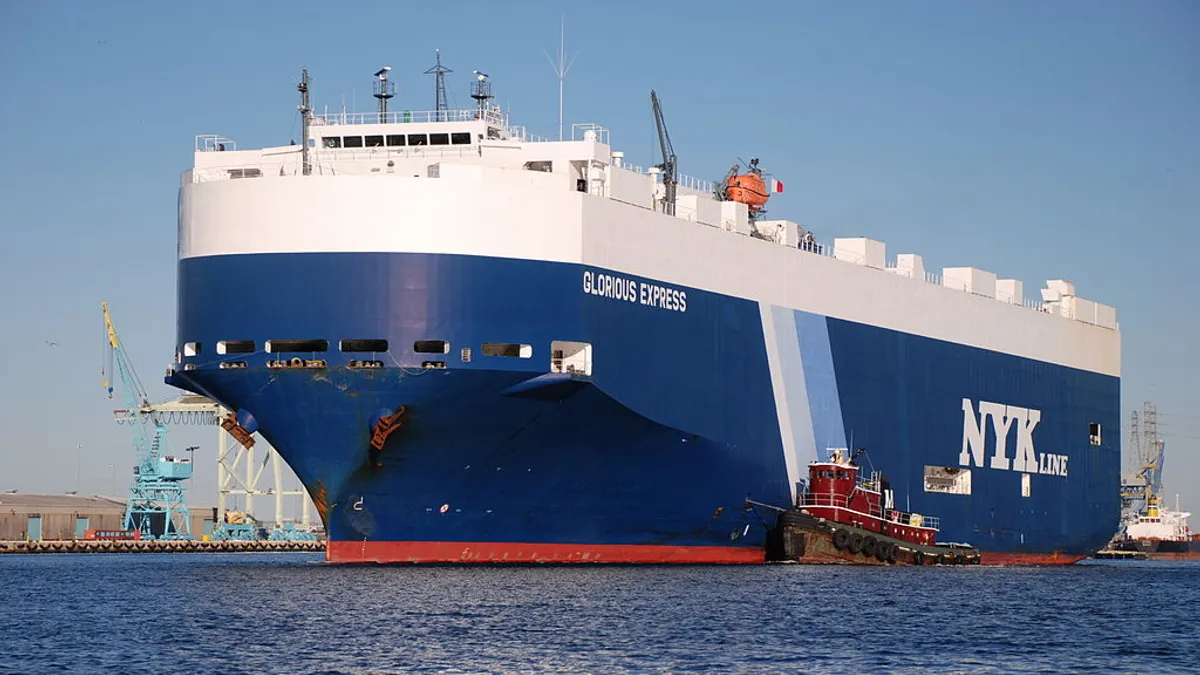Dive Brief:
- The proposed Ocean Network Express (ONE) merger may have suffered a blow in the form of rejection by the South African Competition Commission last week, but the merging Japanese lines are not giving up, according to various reports citing a recent Alphaliner analysis.
- Mitsui OSK Lines (MOL), Nippon Yusen Kabushiki Kaisha (NYK), and Kawasaki Kisen Kaisha (K Line) are looking to appeal the Commission's decision, and also exploring the possibility of ceasing trade to South Africa in order to move forward with the merger, The Loadstar reported.
- A successful appeal, however, would be ideal for the lines. JOC.com reports the Commission's logic for refusal could be challenged on the grounds that ONE's container operations would remain separate from its other businesses, which could be guaranteed by forbidding the lines from sharing information.
Dive Insight:
The Japanese lines' commitment to fighting the South African regulators' decision underscores the importance of consolidation among mid-sized carriers in the shipping industry in order to remain competitive.
The three merging lines each claim less than 600,000 TEU. A.P. Moller-Maersk and MSC each boast more than 3 million TEU, according to Alphaliner data. Together, ONE would carry roughly 1.4 million TEU, making it the sixth largest shipping line worldwide.
The consolidation of shipping capacity at the top is significant as it has led larger ships and carriers to dominate prominent East-West trade routes, leaving smaller carriers behind to serve regional routes and ports. Many of the global terminals are similarly controlled by the top lines, and no member of the three global shipping alliances carries less than 300,000 TEUs.
As questions surrounding the fate of Orient Overseas Container Lines (ranked 7th largest by Alphaliner) and Yang Ming Marine (8th) arise, and after Hamburg Sud's (10th) acquisition, a trend toward consolidation at the top is made clear. If OOCL and Yang Ming are bought out, and ONE succeeds in merging, six shipping lines would control 75% of global container capacity. In this hypothetical future, being part of this elite club would be necessary to remain competitive, given the economies of scale.
But the path to consolidation may be getting harder for the shipping industry, as evidenced by South Africa's rejection of the merger on somewhat-related antitrust concerns, as well as a U.S. Justice Department investigation.
While South Africa's rejection, and a subsequent failed appeal leading to a trade lane exit, would not be disastrous for ONE — the combined lines only have a 12% market share of trade to the country compared to the 2M Alliance's 56% — it reflects rising scrutiny toward the shipping industry.
Singapore may have approved the merger, but ONE must still secure approval from U.S. antitrust regulators to begin operations. Regardless of the climate, however, Alphaliner believes securing approval should not be a problem, given a more limited market share to U.S. markets, according to JOC.com.
While the members of the proposed ONE Line await further regulatory decisions, the various setbacks will likely delay the initially proposed July 1st formation date for the joint venture. However, although the lines may be off to a rocky start, there is still a chance for success.













